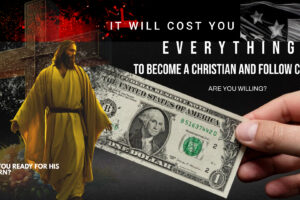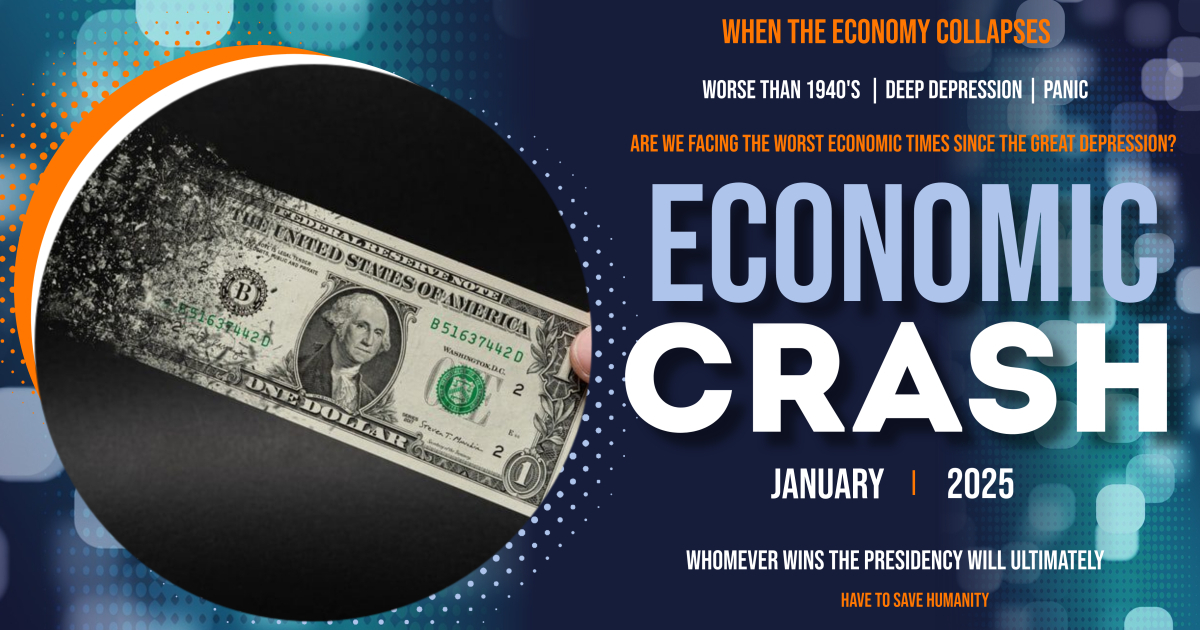By Peter St. Onge/Daily Sigal
Americans are running out of money.
According to the Federal Reserve, America’s savings rate just hit a fresh low while credit card balances hit a record high–with 25% interest.
In short, the median American is currently scrounging for coins in the couch and putting the Hamburger Helper on the visa.
According to the Bureau of Economic Analysis, the nation’s personal savings rate just hit 2.9%. That’s 2.9 cents on the dollar.
That’s the second worst rate in 75 years.
What’s driving it is that, according to a new analysis, inflation-adjusted real median household income–how much the 50th percentile of households make–actually dropped since 2019.
In other words, in terms of how it feels to American households, we’ve been in recession for five years. Hence the savings, and hence the debt.
Note, that’s even taking government inflation numbers at face value. If, as many suspect, the official numbers are lying, it means we’re a lot poorer than five years ago.
The last time that happened was the 2008 financial crisis. Of course, we’re allegedly not in the middle of a once-in-a-century financial crisis–this is the Biden-Harris miracle, if you watch TV.
So, if things cost more and you’re not making more, the last man standing is dumping the piggy bank, one last quick check of the couch cushions, and it’s credit cards as far as the eye can see.
What’s driving the weak incomes? Three things: slow job growth, meaning wages aren’t keeping up; the inflation itself; and the Fed’s rate hikes that have given us those 25% credit cards and 7.5% mortgages on half-million-dollar starter homes.
In raw numbers, according to the Fed, consumer debt is up an annualized $300 billion, hitting a record $5.1 trillion in just consumer debt–and there’s another $12 trillion in mortgage and other debt.
A big chunk of that is credit cards, which just hit a record $1.14 trillion dollars while the average annual percentage rate on credit cards–according to Lending Tree–just hit 24.92%. Even cheaper than the mafia.
Keep in mind if credit cards charge 25% interest, that $1.14 trillion means close to a quarter trillion in annual credit card interest alone.
A recent ABC News story walked through how you get to $1.14 trillion–how people fall into the credit card hole–profiling an Indianapolis father who was managing to cover rent and food, but when he needed to replace the washer and dryer, he fell behind, soon ballooning to $12,000 in credit card debt. At 25% interest.
The fun keeps going. I’ve mentioned recently how car repossessions are rising because millions of Americans were forced to buy expensive cars during the pandemic since supply chain shortages meant they were only making the expensive trims. Now, repossessions are up 23% year on year. Yes, it’s a good time to be a repo man–and we haven’t even hit the meat of the recession yet.
So what’s next?
The American consumer is floating on drained savings, credit card debt, and government money. And even with all that, incomes are still falling.
None of it’s sustainable–we learned that in 2008–but it’s a lot easier for Washington to kick the can–to let the American people mortgage their future–than it is to take the federal boot off the neck of job creators, entrepreneurs, small businesses, and manufacturers.
Economist Herb Stein famously said, “Whatever can’t go on forever will stop.” The music’s running out.
Originally published at The Daily Signal












